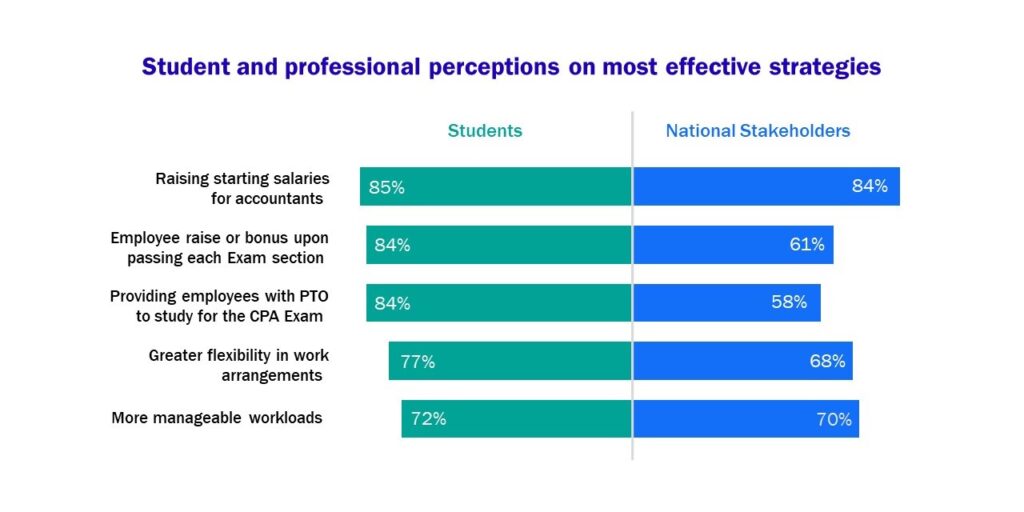Your Expertise Can Make a Difference
AICPA would like to introduce a new partnership with Junior Achievement, in collaboration with state CPA societies. As a Certified Public Accountant (CPA), you have a unique set of skills and knowledge that can profoundly impact the lives and futures of young people. Junior Achievement (JA), a global organization dedicated to preparing young people for success in a global economy, offers a remarkable volunteer opportunity for CPAs to share their expertise and inspire the next generation of business leaders.
The success of Junior Achievement (JA) relies on volunteers from local communities to engage students in the K-12 space to deliver financial literacy and career readiness resources. AICPA believes that we can meet the needs of both JA and the CPA pipeline by encouraging CPAs to increase students’ awareness of – and interest in – accounting and to “tell a more compelling story” to students by volunteering with JA either through their firm, state society, or individually.
What is Junior Achievement?
Junior Achievement USA is the nation’s largest organization dedicated to giving young people the knowledge and skills they need to own their economic success, plan for their future, and make smart academic and economic choices.
Junior Achievement USA reaches over 4.4 million students per year in 176,714 classrooms and after-school locations. JA programs are taught by volunteers in inner cities, suburbs, and rural areas throughout the United States, by over 100 Area Offices in all 50 states.
Why Volunteer with Junior Achievement?
Your knowledge in accounting, finance, and business can provide students with invaluable insights into the world of finance and business management. You will be helping them develop skills that are crucial for their future success.
Did you know that 56% of JA Alumni say they are currently in a career or job, or have worked in a similar position, to one of their JA volunteers?
By volunteering, you have the chance to:
- Inspire Future Leaders: As a mentor, you have the power to inspire students to pursue careers in accounting and finance. Your personal journey and professional experiences can ignite a passion for these fields in young minds.
- Give Back to the Community: Volunteering with JA is a wonderful way to give back to your community. You will be contributing to the development of a well-informed and capable future workforce.
- Professional Development: Volunteering offers you the chance to refine your communication and leadership skills. Teaching and mentoring can provide new perspectives and enhance your own professional growth.
Recommended Volunteer Opportunities
There are various ways CPAs can volunteer with Junior Achievement:
JA Career Speaker Series
(45-minute volunteer experience)
In JA Career Speaker Series®, a volunteer guest speaker visits the classroom and shares information about their career, work, and education experience. The speaker may bring props, work samples, or other visuals to help engage students.
JA Career Exploration Fair
(3–7-hour time commitment)
JA Career Exploration Fair® is an event where students learn about a range of career options across multiple career clusters. Volunteers share information about their businesses and/or jobs, and students ask questions as the speakers or students rotate from station to station.
JA BizTown
(For 3rd to 5th graders – one day, 4-6-hour time commitment)
JA BizTown® combines in-class learning with a day-long visit to a simulated town. This popular learning experience allows elementary school students to operate banks, manage restaurants, write checks, and vote for mayor. Students are able to connect the dots between what they learn in school and the real world.
JA Finance Park
(For 7th to 9th graders – one day, 4-6-hour time commitment guiding students through simulation)
JA Finance Park® is Junior Achievement’s capstone program for personal financial planning and career exploration. This program, comprising a curriculum and a simulation, helps students build a foundation on which they can make intelligent financial decisions that last a lifetime, including decisions related to income, expenses, savings, and credit.
How to Get Started
Volunteering with Junior Achievement is easy and rewarding. Here’s how you can get started:
- Download the Junior Achievement Firm Toolkit: Created by the AICPA, this resource provides step by step instructions on how to begin a JA partnership, including an email template to use when promoting with staff, and links to marketing materials.
- Review tips for Fostering a Culture of Service and Engagement: This resource is designed to aid firms in engaging their employees in a culture of service and engagement.
- Visit the JA Website: Go to the Junior Achievement website and explore the volunteer opportunities available in your area.
- Contact Your Local JA Office: Reach out to your nearest JA office to express your interest and learn more about the specific programs they offer.
- Attend a Training Session: JA provides training for all volunteers to ensure you are well-prepared to engage with students effectively.
- Reach out to your state CPA society: Your local state society would love to hear about your JA involvement and may have additional resources to use when connecting with students.
- Start Volunteering: Once you’ve completed the training, you’ll be matched with a program that suits your interests and expertise. Begin your journey of making a lasting impact on young lives.
- Share your Experience: We want to hear from you! Complete this brief survey to share your feedback.
Conclusion
Volunteering with Junior Achievement is an opportunity to inspire, guide, and shape students’ futures by sharing your story. As a CPA, your skills and experience are incredibly valuable in helping young people navigate the complexities of finance and business. By investing your time and knowledge, you are not only contributing to their personal growth but also to the betterment of our community and economy.
Join us in this fulfilling endeavor and become a beacon of knowledge and inspiration for the next generation. Together, we can make a difference, one student at a time. Your journey to empower the future leaders of tomorrow begins now.






